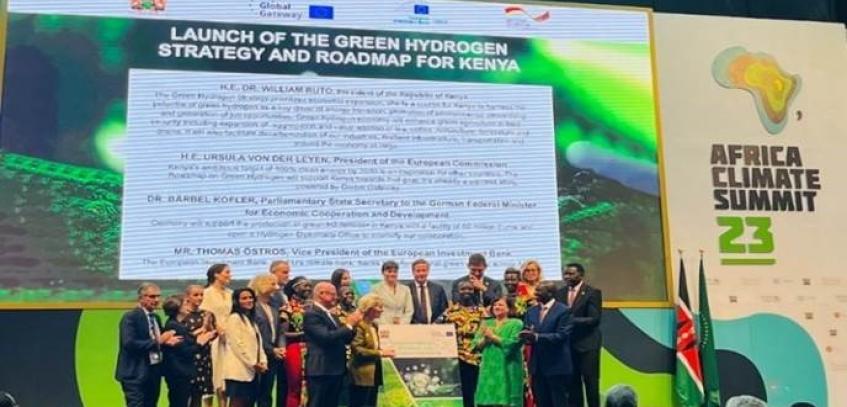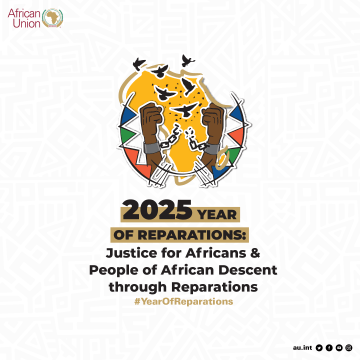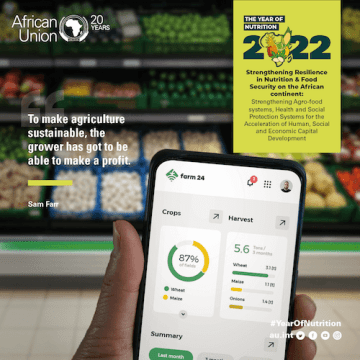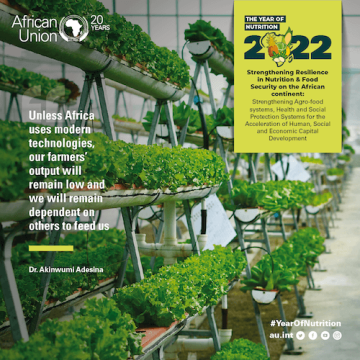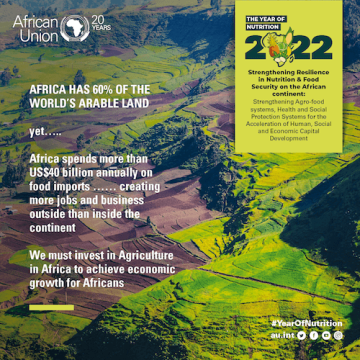Nairobi - 07 September 2023. The landmark Africa Climate Summit 2023 (ACS23) held on 4-6 September 2023 in Nairobi, Kenya, was the first African-led summit of its kind organised by the African Union, the Republic of Kenya, and partners. The Summit was held pursuant to the Decisions (AU/Dec.723(XXXII), AU/Dec.764 (XXXIII) and AU/Dec.855(XXXVI)) made by the Assembly of Heads of State and Government of the African Union at its 36th Ordinary Session held on 18-19 February 2023 in Addis Ababa, Ethiopia. The Decisions request the African Union Commission to organize an African Climate Summit and endorse the offer by the Republic of Kenya to host the Summit. The theme of the notable conference was: ‘Driving Green Growth and Climate Finance Solutions for Africa and the World’.
The high-level event was attended by world leaders, who delivered statements regarding solutions for timely climate action, as well as how their countries were making strides towards environmentally sustainable developments. The Summit enlisted the expertise of multilateral institutions, industry captains, private investors, legislators, indigenous people, youth, philanthropists, researchers and scientists, civil society as well as media houses to ensure that the continent honed its own collective and unified position on Climate Change.
As emphasised by H.E William Ruto, President of the Republic of Kenya, the continent’s formidable “human capital, natural resource wealth and immense green energy potential will define the future of global opportunity for unprecedented prosperity and a new paradigm of industrialisation that respects the environments and supports our planet’s capacity to sustain biodiversity.”
The conference deliberated on a myriad of climate-related issues, including scaling international climate finance for Africa towards the development of a new global climate finance architecture. These challenges have been highlighted in APRM assessments that support AU member states in the field of credit rating agencies. In creating a new global finance architecture, the Summit called for the re-configuration of multilateral banks towards credit regimes that are more fit-for-purpose. In their call for context-specific African solutions, African countries noted that the disproportionate need for climate adaptation strategies and the simultaneous need for climate adaptation financing increases the imperative for Africa to develop its own carbon markets and become a global green industrial hub.
During discussions on critical minerals and Africa's Green Minerals Strategy, speakers emphasized the need for leaders in mineral-rich countries to strategically leverage the demands of global energy transitions by ensuring sustainable mineral supply chains while maximizing beneficiation and increasing local value. Furthermore, discussions explored avenues for regional collaboration to drive investment, bolster renewable energy capacity, foster local manufacturing, establish equitable trade rules, and promote responsible and ethical mining practices.
Human capital advancement was highlighted as a priority for Africa’s development, especially the up skilling of young people in green sectors and industry. This led to proposed models of inclusion of youth in African climate change frameworks and processes. Similarly, the Summit discussed other pertinent themes such as investment opportunities for food systems in Africa, climate resilient investments in water, Africa's renewable energy potential, climate adaptation, Africa’s green hydrogen, manufacturing, and trade potential, investments in biodiversity, as well as the blue economy, among others.
The Africa Climate Summit closed with the signing of the Nairobi Declaration, which was adopted by African Heads of State and Government in the presence of global leaders and high-level representatives on 6 September 2023 in Nairobi, Kenya. The African Leaders Nairobi Declaration on Climate Change and Call to Action (2023) is a consolidated pact representing Africa’s position on Climate Change. The ambitious Nairobi Declaration serves as the facilitator for burgeoning partnerships such as the signing of Kenya’s Green Hydrogen Strategy with the EU, as well as substantial financial commitments. For example, a total of USD 23 billion was pledged for green growth, mitigation, and adaptation efforts to address climate challenges. An amount of USD 60 million was committed to expand green growth and access in Burundi, while USD 4.5 billion was dedicated to African nations from the United Arab Emirates (UAE) to boost renewable energy, as well as significant contributions from European nations and the private sector for renewable energy initiatives.
Following the success of this inaugural ACS23, the AU Heads of States and Government decided to establish the Africa Climate Summit as a biennial event convened by the African Union and hosted by AU Member States, to set the continent’s new vision and take into consideration the emerging global climate, development, and governance issues. The deliberations made at ACS23 will serve as a road map to COP 28, scheduled to convene from 30 November to 12 December 2023 in Dubai, UAE.
Led by the Chief Executive Officer, Prof. Eddy Maloka, the African Peer Review Mechanism (APRM)’s participation at the three-day summit ensured that the foremost African Union premier institution on the promotion of good governance on the continent would be party to the crucial decisions emanating from the Summit. The APRM has the mandate to foster the adoption of policies, standards and practices that lead to political stability, high economic growth, sustainable and inclusive development in the areas of Democracy and Political Governance (DPG), Economic Governance and Management (EGM), Corporate Governance (CG), Broad-based Sustainable Socio-economic Development (SED), as well as State Resilience to Shocks and Disasters (SRSD).
The decisions made at the 2023 Africa Climate Summit align with the work of the APRM, more so with the 5th thematic area which relates to State Resilience to Shocks and Disasters (SRSD).
To ensure adequate natural resource governance processes on the continent, the Nairobi Declaration will serve as a blueprint guiding APRM assessments in SRSD and related thematic areas. This will encourage improvements in institutional capacity, highlight enabling environments for climate adaptation, support disaster risk reduction strategies, as well as increase resilience of African nations to the adverse effects of shocks and climatic disasters.
APRM CEO’S OFFICE
For inquiries please contact:
Adv Batlokoa Makong - Ag. Chief of Staff. batlokoa.makong@aprm-au.org
Ms. Karabo Chadzingwa – Research Assistant. karabo.chadzingwa@aprm-au.org

